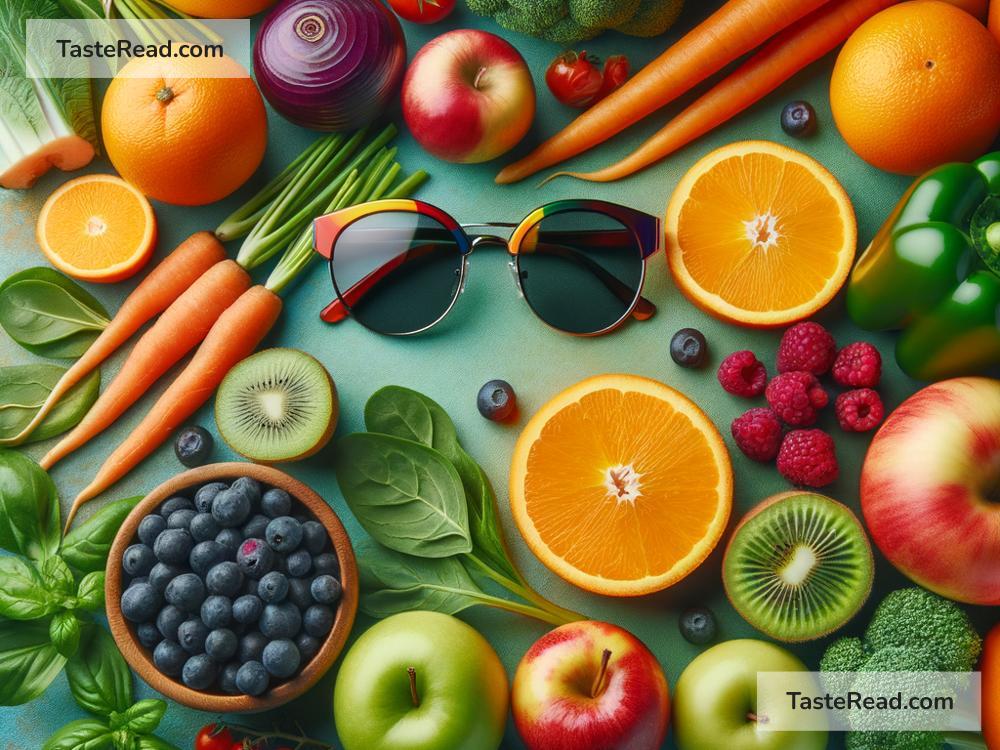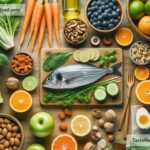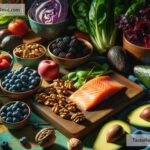Foods That Protect Against UV Damage to Eyes
We often think about sunscreen and sunglasses as tools to protect us from harmful UV rays, but did you know that the foods you eat can also play a role in shielding your eyes? Your eyes are highly sensitive to ultraviolet (UV) radiation, which can lead to problems like cataracts, macular degeneration, and even temporary blindness known as photokeratitis. Luckily, some foods contain powerful nutrients that can protect your eyes from UV damage. Adding these to your diet is an easy and natural way to take care of your vision.
Why UV Damage is Harmful to Eyes
UV rays are invisible rays from the sun that can penetrate your eyes and cause harm. Over time, exposure to UV light can damage the cornea, lens, and retina, which are essential parts of your eye that help you see clearly. Long-term exposure may lead to serious conditions like cataracts or macular degeneration, especially if you’re outdoors frequently without proper eye protection. But with the right foods, you can strengthen your eyes to better resist UV damage.
How Foods Can Help Protect Your Eyes
Certain foods are packed with nutrients that act as natural shields for your eyes. These nutrients include antioxidants, vitamins, and compounds that fight inflammation and reduce oxidative stress caused by UV rays. By focusing on a diet rich in eye-friendly foods, you improve your vision health and reduce your risk of UV-related problems.
Here are some foods that nourish and protect your eyes from harmful UV damage:
1. Carrots and Other Orange Veggies
Carrots are famous for being “good for your eyes” because they’re rich in beta-carotene. Beta-carotene is a type of antioxidant that converts into vitamin A in your body. Vitamin A supports the health of your cornea, the clear front part of your eye, and helps protect it from UV damage.
Other orange vegetables like sweet potatoes, butternut squash, and orange bell peppers also contain beta-carotene. Plus, their vibrant color makes them an easy addition to your meals!
2. Leafy Greens
Spinach, kale, and other leafy greens are loaded with lutein and zeaxanthin. These are antioxidants that act like natural sunglasses by filtering out harmful UV rays before they can reach the retina. Not only do these nutrients protect your eyes, but they also help improve vision clarity.
Pro tip: Eating your greens with a little healthy fat (like olive oil or avocado) increases your body’s ability to absorb these nutrients.
3. Salmon and Other Fatty Fish
Salmon is rich in omega-3 fatty acids, which are important for overall eye health. These healthy fats reduce inflammation and improve the function of your tear film, which protects your eyes from dryness and UV-related irritation. Omega-3s are also linked with lowering your risk of macular degeneration later in life.
Other sources of omega-3s include tuna, mackerel, sardines, flaxseeds, and walnuts.
4. Nuts and Seeds
In addition to omega-3 fatty acids, nuts and seeds like almonds, sunflower seeds, and chia seeds are packed with vitamin E. This powerful antioxidant helps protect your eyes from oxidative damage caused by UV rays. Research shows that people who eat more vitamin E are less likely to develop cataracts as they age.
Snack on a handful of almonds or sprinkle sunflower seeds onto salads or yogurt for an extra eye-health boost!
5. Citrus Fruits
Vitamin C is another nutrient that helps protect your eyes from the harmful effects of UV light. Citrus fruits like oranges, lemons, and grapefruits are high in vitamin C, as well as berries like strawberries and blueberries.
Vitamin C supports the health of blood vessels in your eyes and reduces oxidative stress caused by UV rays. This nutrient also works alongside vitamin E for double the protection.
6. Eggs
Eggs are a great source of lutein and zeaxanthin, the same antioxidants found in leafy greens. Additionally, eggs contain zinc, which helps protect your eyes from UV damage and aids vitamin A in maintaining your cornea’s health.
Enjoy eggs scrambled, boiled, or in your favorite recipes—it’s a simple way to add UV-protective nutrients to your diet.
7. Tomatoes
Tomatoes are rich in lycopene, a powerful antioxidant that protects your eyes from UV radiation. Lycopene also fights free radicals, helping to prevent cell damage in your eyes. Cooking tomatoes enhances their lycopene content, so enjoy them as sauce, soup, or grilled for maximum benefits.
8. Green Tea
Green tea contains catechins, which are antioxidants that benefit eye health by reducing inflammation and protecting the retina. Drinking green tea regularly can help strengthen your eyes against UV ray exposure.
Add a cup of green tea to your daily routine—you’ll be doing your eyes a big favor!
Tips for Total Eye Protection
Eating nutrient-rich foods is only part of the puzzle. To fully protect your eyes from UV rays:
– Wear sunglasses with 100% UV protection when outdoors.
– Use a wide-brimmed hat to shield your face and eyes.
– Avoid direct sunlight during peak hours (10 a.m. to 4 p.m.).
– Visit an eye doctor regularly for check-ups.
Final Thoughts
Your eyes work hard every day, so show them some love with a diet rich in foods that protect against UV damage. Vegetables, fruits, nuts, seeds, fish, and even tea contain powerful nutrients that improve eye health and protect your vision from harmful UV rays. By making these foods a regular part of your meals, you’re taking an active step to ensure your eyes stay healthy for years to come.
Protect your eyes by starting with what’s on your plate—it’s easy, delicious, and effective!


